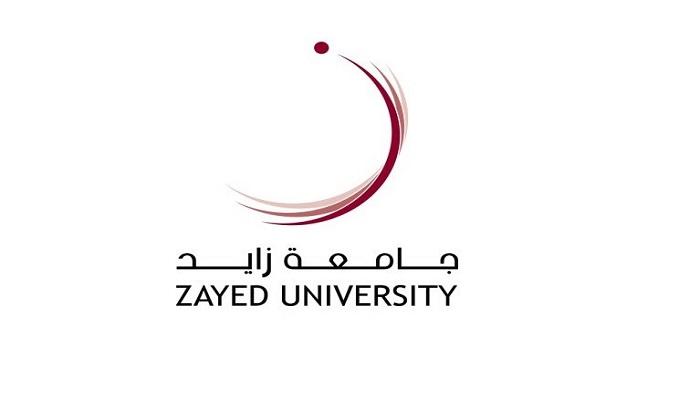
Zayed University 3rd Annual Education Conference
Zayed University virtually held the 3rd annual Education Conference “Zayed’s Legacy: the next 50 years start now” hosting over 500 education experts to address and explore the future of education over the next 5 decades for the UAE Centennial 2071 Objectives. The conference was organized in collaboration between Zayed University’s College of Education, UAE Ministry of Education and the Arab Thought Foundation.
The conference was held in the presence of three key ministers from the UAE academic sector - H.E. Noura Bint Mohammed Al Kaabi, Minister of Culture and Youth and President of Zayed University, H.E. Hussain Ibrahim Al Hammadi, Minister of Education and H.E. Jameela Al Muhairi, Cabinet Member and Minister of State for Public Education.
In her opening remarks, HE Noura Al Kaabi, stated: “The UAE puts educational development at the forefront of its national agenda. It is essential that we, at Zayed University continue to advocate the further development of educational institutions and professionals – all in the efforts towards contributing to promoting a tolerant, happy and a socially responsible society. Over the next 50 years, the UAE aims to adapt to and be an effective partner in creating the best educational models and technologies in the world and in applying the finest early childhood educational systems. Moreover, as we collectively work towards our country’s Centennial Plan of 2071, the UAE aims to set a multidisciplinary educational system that ensures producing creative talents and evolved mechanisms that help make professionalism and positive moral values the cornerstones of our operations.”
“In the UAE, education over the next 50 years shall elevate itself by producing generations of open-minded, flexible and reflective global citizens who are active and enabled members of society possessing unique talents,” Al Kaabi Added.
H.E. Jameela Al Muhairi, Cabinet Member and Minister of State for Public Education, said: “Based on the directives of the leadership, we in the Ministry of Education held discussions and consultations with all partners concerned with education in the country to formulate a plan for the next 50 years for education, and then came to conclude the following topics that we will work together to achieve in the few coming years. The first axis focuses on individual education and the need to redesign the educational system to meet the individual needs of each student. The second is focusing on the skills that contribute to the formation of a generation that has sufficient awareness of how to build a healthy life from the psychological, intellectual and physical aspects to be able to achieve the required balance for coexistence with others.”
She further added, “The third axis is to provide an educational system that adapts the latest technology and uses artificial intelligence to support the educational system. And last but not least, develop future skills to meet the requirements of the labor market within institutions or entrepreneurship that will occupy a large space in the future economy according to the expectations of experts in the World Economic Forum and global market trends.”
For his part Prof. Henri Awit, Director General of the Arab Thought Foundation, said “The world is currently witnessing profound and unprecedented transformations, at various levels and in various fields. The Fourth Industrial Revolution accelerated its pace and rhythm. It calls for the educational sector to maximize efforts to face the enormous challenges that it has imposed and prepare for the repercussions over the coming decades.”
“Addressing this vital and urgent task requires all of us – leaders, citizens, individuals and groups, to improve awareness, place a clear vision, establish close networking, and continuous perseverance. These are the basic principles that our conference aspires to highlight and promote,” he added.
Dr. Rana Tamim, Dean of the College of Education – Zayed University, said: “The education workforce has witnessed a global authentic professional development to meet the expectations of the transition to online, blended, hybrid, or emergency remote teaching. Whatever the term to be used is, the current situation has also enabled us to focus on how we are meeting our students’ needs, and with this, we need to ensure that we make the best out of teachers’ and academics’ experiences around the world as we envision the future of education and plan for what is coming.”
The conference featured concurrent sessions offered by faculty from Zayed University’s College of Education, as well as five international speakers, Prof. Henri Awit, Director General of theArab Thought Foundation, Professor S. Gopinathan, the Academic Advisor at The HEAD Foundation who he addressed the importance of teacher preparation for a reimagined future schooling system. Samia Kazi, who holds leadership roles at global early childhood organizations, spoke about the artificial intelligence and early childhood education. Colin Penfold, a Principal Consultant at Education Development Trust, addressed the future of STEM education. Dr Gail Brown, recognized for her research and thesis in comprehension, member of ILA, SSSR and ALEA, tackled the importance of Reading Fluency and a Simple, Evidence-Informed Intervention.
18 online sessions and workshops were held during the virtual conference, highlighting assorted topics by seasoned educators from the region. The conference highlighted topics in multilingual language acquisition and identity in specific social contexts - Translanguaging, Inclusive Education, Curriculum Development, Educational Technology and Teacher Education, Mental grammar and instructional grammar, Language Evolution theories and Mathematical Literacy.
The Conference also highlighted School Leadership in the UAE Today, Transdisciplinary STEAM Curriculum Using Assessment on Transforming Students' Learning, discussed Online Learning Habits & Engagement, using art to teach Arabic in class, Dyscalculia and effects on Teachers, Parents, and Students, and much more.

























